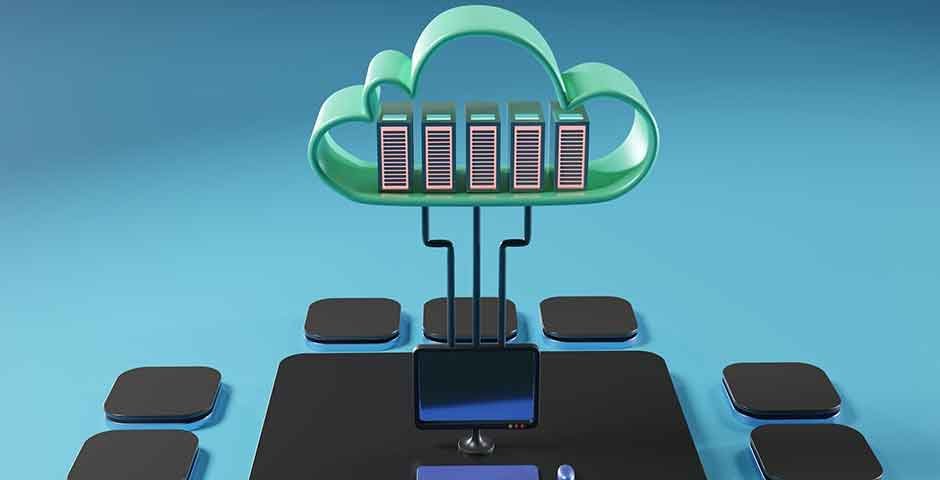The exponential growth of data and the need for secure, efficient, and cost-effective storage solutions have paved the way for a new era of data storage: decentralized cloud computing. This technology is poised to disrupt the traditional cloud storage market and offer more secure, scalable, and affordable solutions to businesses and individuals alike.
In this article, we will explore what cloud storage is, the concept of decentralized cloud storage, and the role of cloud computing blockchain projects and computing crypto in the future of data storage.
What Is Cloud Storage?
It is the practice of storing digital data on remote servers that are accessed through the Internet. This technology enables users to stock and access their data without the need for physical storage devices such as hard drives or USB sticks. The key advantages of cloud storage include accessibility, scalability, and cost savings.
Users can access their data from anywhere in the world, as long as they have an Internet connection. They can also easily scale their storage needs up or down, depending on their requirements. Additionally, cloud storage eliminates the need for purchasing and maintaining expensive on-premises hardware.
Decentralized Cloud Storage
This is a new approach to data storage that leverages blockchain technology and peer-to-peer (P2P) networks. Instead of relying on a single centralized provider, data is distributed across multiple nodes in a network. This offers several advantages over traditional cloud storage, including:
1. Enhanced Security
Decentralized cloud storage reduces the risk of data breaches as there is no single point of failure. Each file is encrypted, split into fragments, and distributed across multiple nodes, making it nearly impossible for hackers to access the data.
2. Improved Privacy
With decentralized cloud storage, only the owner of the data has access to the encryption keys, ensuring that no third parties can access their information without their consent.
3. Increased Reliability
The distributed nature of decentralized cloud storage means that data is not reliant on a single provider, thus guaranteeing that data remains accessible even if one or more nodes experience downtime.
4. Cost-Effective Solutions
Decentralized cloud storage can offer lower costs as providers compete with each other on price, and users only pay for the storage they actually use.
Understanding Cloud Computing Blockchain Projects
These are initiatives that aim to leverage the power of blockchain technology to improve various aspects of cloud computing, including data storage. They typically focus on developing decentralized cloud storage platforms that offer greater security, privacy, and efficiency than traditional cloud storage solutions. Some examples of prominent cloud computing blockchain projects include Filecoin, Storj, and Sia.
By utilizing blockchain technology, these projects can offer transparent, tamper-proof, and secure solutions for data storage. They also often incorporate token-based incentives for users to participate in the network by sharing their unused storage space, creating a truly decentralized and collaborative ecosystem.
Computing Crypto
In the context of decentralized cloud storage, computing crypto refers to the use of cryptographic techniques and protocols to ensure the security and privacy of data. Cryptography plays a crucial role in protecting data in decentralized systems, as it ensures that only authorized parties can access and modify the information.
Some decentralized cloud storage platforms use their native cryptocurrencies or tokens to encourage users to participate in the network. These tokens can be earned by sharing unused storage space or can be traded on cryptocurrency exchanges. The use of crypto in these platforms adds an additional layer of security and incentivization, further promoting the adoption of decentralized cloud computing solutions.
Takeaway
Decentralized cloud computing represents a significant shift in the way we store and manage data. By leveraging blockchain technology and P2P networks, decentralized cloud storage offers enhanced security, privacy, reliability, and cost-effectiveness compared to traditional cloud storage solutions. The integration of cloud computing blockchain projects and computing crypto in these platforms has the potential to disrupt the current data storage landscape and pave the way for a more secure and decentralized future.
As more individuals and businesses become aware of the benefits of decentralized cloud computing, we can expect to see increased adoption of this technology, ultimately leading to a more secure and efficient way of managing data. Companies like Store Cloud are at the forefront of this revolution, providing innovative solutions that harness the power of decentralized cloud computing to meet the evolving needs of their clients.
Whether you are an individual looking for a secure and private way to store your personal data or a business in search of a scalable and cost-effective data storage solution, decentralized cloud computing offers a promising alternative to traditional cloud storage methods. Embracing this technology today can help you stay ahead of the curve and prepare for the future of data storage.






